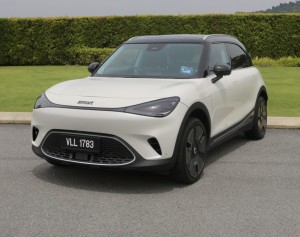PETALING JAYA: With the government’s plan to roll back RON95 petrol subsidies in the near future, Nissan’s impressive fuel-sipping e-POWER technology would be much welcomed by Malaysian motorists.
A new petrol-powered Nissan e-POWER car that can deliver 21.7km per litre on the combined cycle or a mere 4.6 litres per 100km, is set to be launched in Malaysia in December.
This means that a Nissan e-POWER car can achieve 868km with a 40-litre petrol tank.
The e-POWER drive system is a unique innovation of Nissan, as it is 100% motor-driven without needing to plug-in and charge.
Electricity is produced by a highly-efficient ICE (internal combustion engine) dedicated to generating power and recharging the battery pack.
Key benefits of e-POWER are instant torque and response, smooth and quiet performance, single-pedal driving and top-level fuel efficiency.

The current e-POWER drivetrain is a second-generation system which has been thoroughly updated; it is more compact, weighs less and offers higher motor output with a large battery capacity and improved efficiency from the ICE.
The on-board lithium-ion battery pack of an e-POWER system is compact in size and lightweight in construction.
Even though the battery capacity has been increased by 30% in the second-generation e-POWER system, the overall system weight is lower and does not impact the drivability, practicality and spaciousness of the vehicle.
Nissan’s next-generation X-in-1 manufacturing concept paves the way for upcoming all-electric and e-POWER models to share an ‘X’ number of components such as inverter, electric motor and reducer.
More importantly, price parity between electrified and ICE powered models can also be achieved in the near future, making e-POWER a highly feasible option on vehicle electrification.
The first ever e-POWER model, the Nissan Note e-POWER, was launched in November 2016 in Japan.

Powertrain difference.
It sold over 100,000 units in the first 11 months and took the top spot in Japan’s new car sales ranking (excluding mini cars) in 2018.
Nissan became the first mass producer of BEVs (battery electric vehicles) when the first generation all-electric LEAF was launched in 2010.
In 2023, Nissan surpassed the one-million milestone in battery EV unit sales while the e-POWER production reached 1.5 million units.












